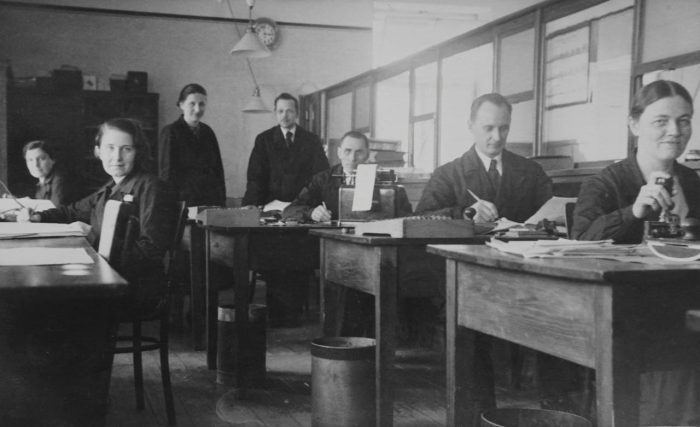
{*Did you know you can write on Elephant? Here’s how—big changes: How to Write & Make Money or at least Be of Benefit on Elephant. ~ Waylon}
~
In the novel, Lock and Key, one of Sarah Dessen’s characters say: “If you expect the worst, you’ll never be disappointed.” And while I haven’t read the novel myself, I can only imagine that this statement was directed at someone the character knew personally.
No matter how selective we are with the people we surround ourselves with, or how trustworthy we believe these people to be, at some point we’ll find ourselves faced with a choice: do we give someone the benefit of the doubt, or do we expect the worst from them so that we can avoid disappointment and pain?
In the professional world, there are many mechanisms to make sure people do what they promised to do. But would we trust doctors and lawyers to keep our information confidential if they weren’t bound by law to do so? Would we trust advertisers if false advertising wasn’t regulated? Would we trust our employers to pay us regular salaries if they weren’t contractually obligated to us? Would we trust colleagues and managers, providers of goods and services, business partners, and even family, friends, and spouses to keep their word in a world without the fear of punishment or legal consequences?
In our personal lives, we are faced with this decision all the time. When we fall in love, we have the choice of trusting the other person not to break our heart, or cutting short a potentially fulfilling relationship. When we tell a friend a secret, we can either believe that they will keep it, or we can expect them to betray our trust. When we lend money to a family member, we have to decide whether that person is reliable enough to pay us back.
In each of these cases, we have to ask: do people deserve the benefit of the doubt—especially those who are not bound by laws, regulations, ethics codes, and contracts—when they promise not to disappoint us? Or is it naïve to think people are interested in anything other than helping themselves and furthering their own agendas?
According to philosopher Thomas Hobbes, had it not been for the rules of society, we would find ourselves in a “dog-eat-dog” world. This means that we, as human beings, are naturally inclined to create societies that are in a constant state of war—the “State of Nature,” as Hobbes calls it—and that our instinct is to promote our own self-interest regardless of the cost to other human beings. In fact, the only reason we behave as we do is because we will be cast out of society if we don’t. It is the fear of punishment—and not our desire to be good—that keeps us on the right track. If this is true, it is entirely reasonable to be suspicious of people we know nothing about (or even ones we do), because it means they are likely to harm us if it furthers their own agendas.
William Golding tries to answer this question in his somewhat horrifying novel, Lord of the Flies. He tells the story of a group of boys who are stranded on an island after a plane crash. Left only to themselves, the boys have to find a way to organize their “society” without the guidance of adults or societal norms. Golding uses this story as a thought experiment to study the way human beings would behave if we didn’t have the imposition of law, rules, norms, and etiquette to guide and mold our behavior. Essentially, he tries to answer the question: are we, at heart, the self-interested people Hobbes believes us to be, or can we be trusted to continue doing the right thing, even if there is nothing preventing us from behaving however we want?
Sadly, Golding comes to the conclusion (spoiler alert!) that Hobbes is right. The boys’ society unravels rapidly as their behavior becomes increasingly cruel. Using this allegory, Golding is essentially affirming Hobbes’ State of Nature by saying that human beings are, in essence, “dog-eat-dog” people, and the only thing preventing us from living out our true natures is the fear of punishment.
In contrast to Hobbes, philosophers Adam Smith and Jean Jacques Rousseau hold the opinion that human beings are inherently good, and that we desire to do right by others because that is how we are “wired.” We can’t help it: doing the right thing—or at least wanting to do the right thing—is part of our nature as human beings. This is a much kinder and more charitable view of human nature, and if our movies and novels are anything to go by, it is the view many people (if not all) prefer.
I’m not sure who was right—Hobbes or Smith and Rousseau—and part of the reason why philosophers have been arguing with each other for several centuries is because no one else seems to know, either. It seems it is up to us, as individuals, to make this choice.
In the famous “Star Trek” series, Gene Roddenberry proposes the following view of humanity: human nature is savage and cruel, but at the same time, he suggests we are able to overcome our nature because we are rational beings capable of change and growth. In the Star Trek universe, people have overcome the State of Nature through rationality; and there are many other alien species who began as savage as ourselves, but who, on account of being older, are further along than us on the spectrum of societal development.
This view is echoed by ancient Greek philosopher Aristotle, who believes that morality is developed through practice. While people are not inherently good from the beginning, they become so the more they learn and the harder they try. Given enough time, it is no longer the fear of banishment that keeps society together, but the goodness that has gradually developed in people. For us, this means that, while we may not be the best we can be, we will be if we continue trying.
In Lock and Key, Dessen says, “There’s no way to be a hundred percent sure about anyone or anything”—and she’s right. But instead of expecting the worst, I believe we should give people the benefit of the doubt.
Knowing people can disappoint you but choosing to believe they won’t is not naïve—it is simultaneously hoping for the best and holding others (and ourselves) to a certain standard, even if they might not live up to it. Expecting the best from people might not ensure they will live up to expectations, but it does mean we are able to believe in the goodness of humanity, regardless of whether that goodness is inherent or constantly evolving.
That counts for something, even in the face of disappointment; in fact, believing people can be good might even be more important than expecting the worst to avoid disappointment.
~

This account does not have permission to comment on Elephant Journal.
Contact support with questions.